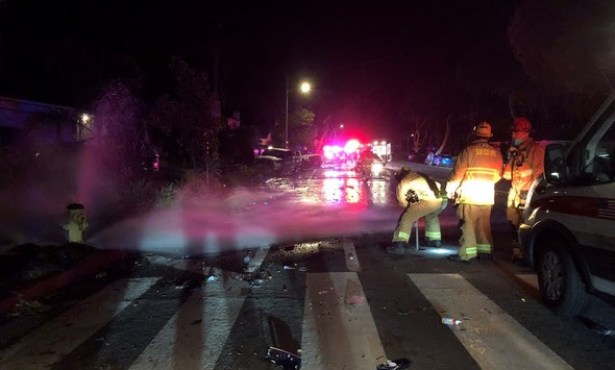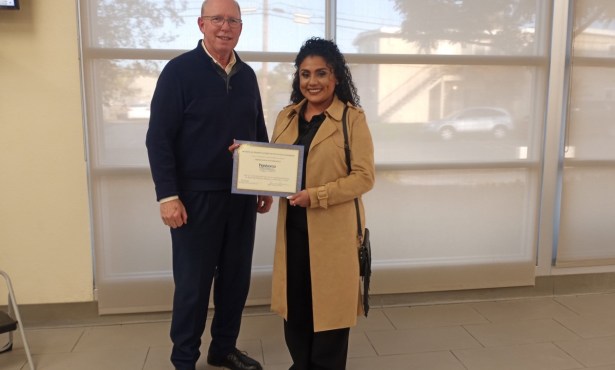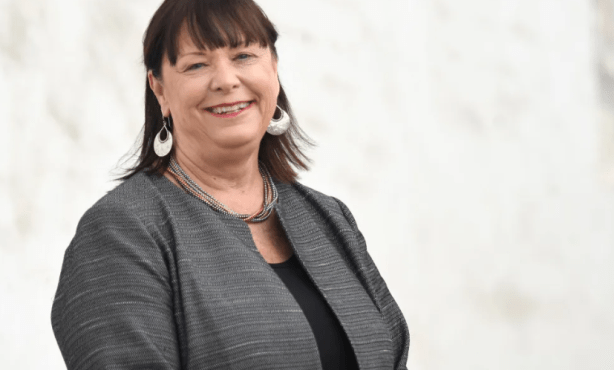Fess Parker Enterprises Sells Camp Four to Chumash
Questions Linger Around Plans for 1,390-Acre Property
The rumors swirling for weeks are true. The Santa Ynez Band of Chumash Indians has purchased the “Camp Four” property from Fess Parker Enterprises, a deal which now begs the question: What will be done with the 1,390-acre property that sits on the northeast intersection of Highways 154 and 246?
The announcement came on the afternoon of Good Friday, in separate press releases from Fess Parker Enterprises and the Chumash. Details were slim, however, about the deal itself and the future of the property. While terms of the sale were not disclosed, reports indicated the recorded value of the property filed at the assessor’s office was $40 million, though that amount is used for tax purposes and does not represent the sale price.
Parker died March 18 at the age of 85, and a longtime spokesperson for Parker, Charles Bargiel, said that while the former actor supported the deal — finalized about a month ago — he didn’t directly participate in the negotiations. Tribal Chairman Vincent Armenta said in a statement that the land is “historically significant to our tribe, and we are excited to own it.” A tribal spokesperson didn’t respond to requests for further comment.
The future plans for the property were not mentioned in either news release, though speculation is running wild through the valley of a possible golf course, hotel, housing for the Chumash, or even another casino; residents are anticipating something will surely be done. As former 3rd District supervisor Brooks Firestone put it: “I don’t think they bought the land just to let it stay in ag.”
Whatever the Chumash do (at least at this point in time) will have to follow county land use policies. The land is currently zoned Ag II-100, meaning parcels on the property can be a minimum of 100 acres. Right now there are four parcels on the property. The Chumash could apply for a maximum of 13 different parcels of 100 acres or smaller. Anything beyond that would require a General Plan amendment, a large and time-consuming undertaking that would likely be met with great opposition. “The people in the valley feel very strongly about keeping it rural,” 3rd District Supervisor Doreen Farr said.
The property, which Parker bought in 1998 for a reported $6 million, also falls under the Williamson Act, a law that offers property tax relief to farmland owners in exchange for an agreement that the land will not be developed. To get out from under the Williamson Act, which self-renews every year, the Chumash would have to file a Notice of Non-Renewal. That had not been done as of Friday afternoon. Even then, they would have to wait 10 years before the land is opened back up for potential development.
Friday’s deal was announced exactly one year and a day after a bill in the Senate died, legislation that would’ve allowed tribal communities to immediately cancel Williamson Act contracts rather than wait 10 years for them to expire. Though Friday’s press releases indicated the deal was the result of several months of conversation, it isn’t clear whether the Chumash were eyeing this property when that Senate bill was introduced on behalf of the Chumash by a state Senator from Kern County, Dean Florez. The bill didn’t make it out of committee, dying on April 1, 2009.
The Chumash could go another direction and seek permission from the federal government to annex the property into their reservation, though that would also likely infuriate valley residents. While Farr said she was opposed to such a move, the feds can weigh local concerns as much as they want, and local government has no real veto power.
The Chumash are currently embroiled in a legal battle with local community groups trying to block the annexation of a 6.9-acre property across Highway 246 from current reservation land. The tribe is attempting to take land it owns — land it intends to turn into a cultural center and museum, and a retail building and park — and make it part of its reservation in a process known as “fee to trust.” Native American reservation land is not under local jurisdiction, and not subjected to taxes or planning, zoning, and building codes. The annexation was approved by the U.S. Bureau of Indian Affairs in January 2005 and subsequently appealed by Preservation of Los Olivos (POLO) and Preservation of Santa Ynez (POSY).
Considering the battle the Chumash have endured at that property — located next to their reservation and quite small — the tribe can expect an uphill fight to win the necessary federal allowance to expand its reservation. “It would be very different, a total departure from what’s been there. The land is not contiguous to the reservation and the Chumash have no direct relationship to the land,” Firestone said.
Camp Four was the site of enormous controversy in the valley in 2004 and 2005, when Parker and the Chumash announced a deal in which Parker would sell the tribe 745 acres of the ranchland, to be filled by the Chumash with a resort hotel, two golf courses, and up to 500 luxury homes. The land would’ve been annexed by the tribe on sovereign land, allowing the Chumash to move forward with the development unhindered by local land use and environmental oversight. Parker would’ve owned 49 percent of the partnership. The deal was announced in between the opening of the $150 million Chumash Casino in September 2003 and the adjoining hotel just months later in July. Opponents to the proposal — many of whom were Parker’s friends, including actor John Forsythe who died Friday morning — and numbered in the hundreds, eventually led to its demise.
More recently, in early 2008 as the county was trying to move forward on building a new North County jail, Parker — constantly shifting and revising ideas and potential projects — proposed a way to increase county tax revenue in the form of a small hotel. The hotel, he said in a letter to county supervisors, would be nestled into a hillside, private and secluded, with few rooms commanding a high price. Nothing came of his early proposal.
So it remains to be seen what the Chumash have in store for the property this time around, with their previous plans for Camp Four still fresh in the minds of local residents. Whatever is to be done will be carried out by the Chumash alone, according to Bargiel, who indicated the Parkers sold the land outright and that there would be no ongoing business relationship between the two parties. He did not know what the Chumash planned for the property. “I hope it’s a good thing for the Parker family, a good thing for the Chumash, and a good thing for the Santa Ynez Valley,” he said.



